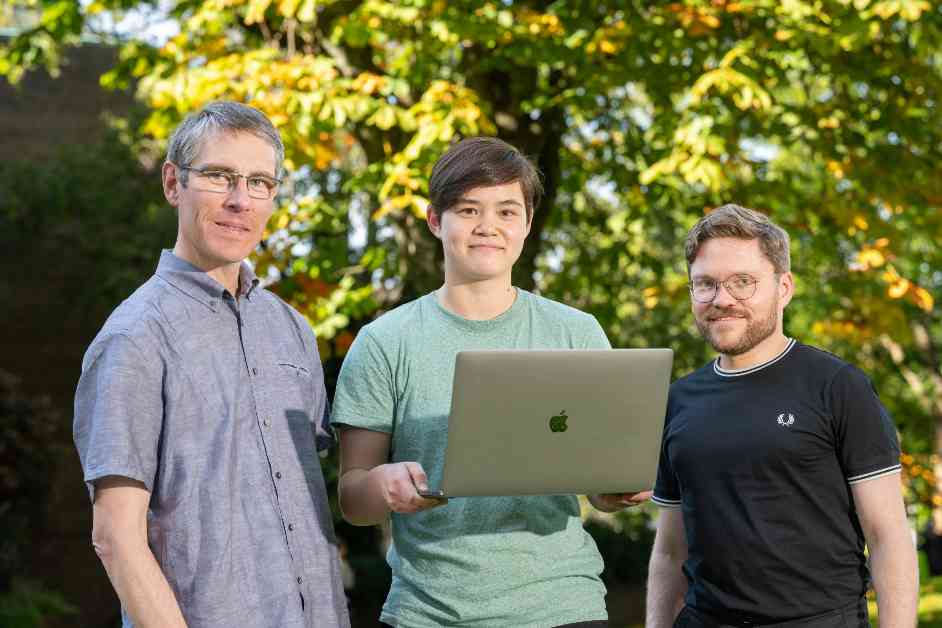The Significance of Incorporating Environmental Impact Studies in Computing Science Education
In a groundbreaking move, computing science students at the University of Glasgow are poised to lead the way in the UK by having material on the environmental impact of digital technologies integrated into their studies. As the new academic year commences, BSc students at the University’s School of Computing Science will receive regular instruction and assessment on the sustainability implications of their chosen field of study.
The urgency of addressing the environmental impact of digital technologies cannot be overstated. Researchers project that by 2040, emissions from computing alone could consume over half of the world’s carbon budget available to limit global heating to 1.5°C above pre-industrial levels. The energy demands of powering computers and data centers constitute around 70% of the computing sector’s carbon emissions, highlighting the critical need for a shift towards sustainability in this area.
Challenges and Consequences of Unsustainable Computing Practices
A significant portion of emissions in the computing sector also stems from the production of hardware, with around a quarter of further emissions arising from the premature replacement of computing devices before the end of their useful lifespan. Moreover, the disposal of abandoned devices like computers and smartphones presents a complex challenge, as they contain layers of metals, plastics, and chemicals that are difficult and costly to recycle, exacerbating their ecological impact.
The implications of unsustainable computing practices extend beyond carbon emissions to encompass broader environmental repercussions. As society becomes increasingly reliant on digital technologies, the need for a comprehensive understanding of the environmental consequences of these advancements becomes imperative. The School of Computing Science at the University of Glasgow recognizes this pressing need and has taken proactive steps to equip future generations of computing scientists with the knowledge and skills to address these challenges head-on.
Empowering Future Computing Scientists for Sustainable Innovation
The School’s updated curriculum aims to empower future computing scientists to play pivotal roles in mitigating the ecological harms of the digital world. By focusing on understanding and assessing the global impact of emissions from computing, students will be encouraged to consider sustainability implications in the systems they design and develop. Professor Wim Vanderbauwhede, who leads the School’s Low Carbon and Sustainable Computing Group, emphasizes the importance of rethinking education to ensure that the next generation of computing scientists are equipped to tackle the climate crisis.
With a keen awareness of the environmental consequences of computing practices, students are poised to drive innovation towards more sustainable solutions. Dr. Lauritz Thamsen, the School’s Sustainability Subject Adviser, underscores the significance of decarbonizing all sectors, including computing, to limit global warming and its catastrophic effects. By integrating sustainability considerations into the curriculum, the University of Glasgow is paving the way for students to make meaningful contributions towards reducing computing’s ecological footprint.
Collaborative Efforts Towards a Sustainable Future
The decision to embed sustainability in the School’s curriculum follows extensive consultation with students, staff, and academics across the UK. A proposal was approved by the College of Science & Engineering’s Learning and Teaching Committee, underscoring the collaborative approach taken in fostering sustainability within the computing science domain. Furthermore, the School’s initiative builds on lectures on the sustainability of computing delivered by Professor Vanderbauwhede, providing students with a holistic understanding of the environmental impact of their field of study.
The University of Glasgow’s commitment to sustainability extends beyond the School of Computing Science, encompassing broader initiatives aimed at mitigating climate change. In 2014, the University made history by becoming the first in the UK to divest from fossil fuel investments, a milestone achieved ahead of schedule last year. In 2019, the University declared a climate emergency, underscoring its dedication to addressing environmental challenges. Additionally, the University’s participation in the Scotland Beyond Net Zero project showcases its commitment to achieving net-zero carbon emissions by 2030, marking a significant step towards a sustainable future.
































